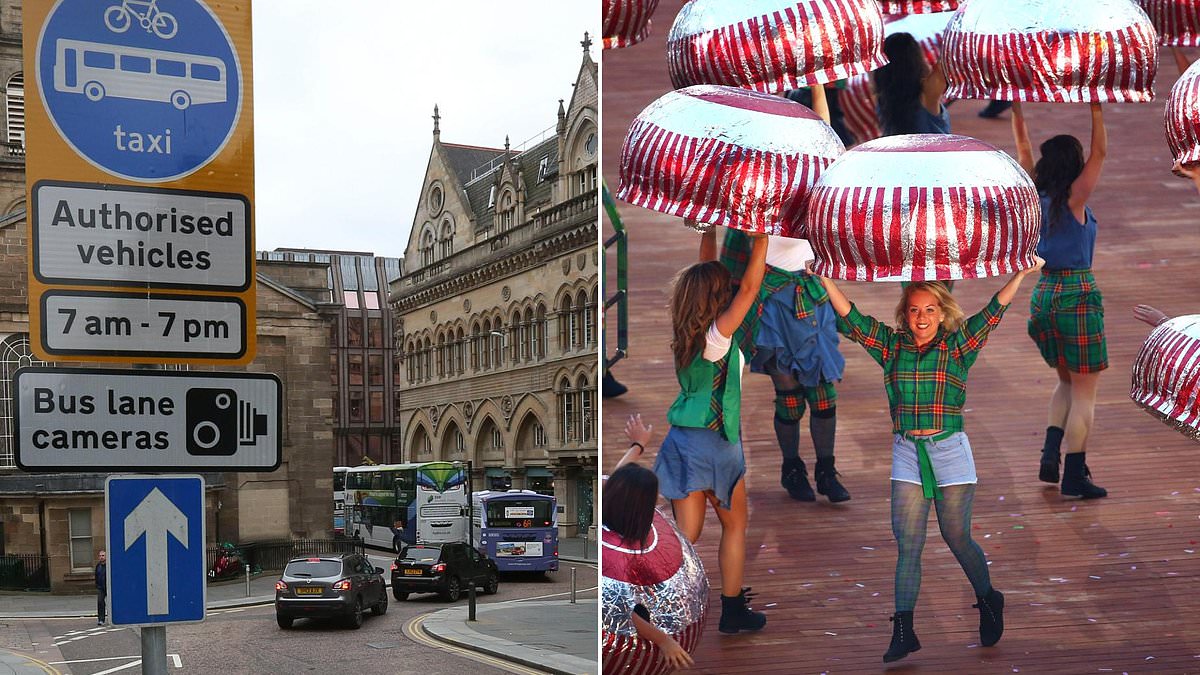Their origins can, in part, be traced to moves to introduce special traffic lanes in Glasgow as the city geared up for the Commonwealth Games in 2014.
However, as bus lanes have proliferated and become a fixture across Scotland’s three biggest cities, we can today reveal the staggering levels of fines paid by motorists – raising concerns the lanes have been little more than a council cash-raising device all along.
Figures obtained by this newspaper show the fines have, for a decade, been issued at an astonishing rate of more than 500 every day, with drivers having paid an eye-watering £64 million in fines.
The vast majority of the sums collected, £38 million, have been in Glasgow, with a further £13 million raised in each of Aberdeen and Edinburgh.
Critics point to the huge number of tickets still being issued as evidence that signage is not working and have called for clearer indications that drivers are approaching enforced lanes.
More than two million of the fines have now been issued in Scotland.
Glasgow, set to host the Commonwealth Games again in 2026, has seen around 1.2 million fines issued, raising thousands every day for the local authority, with 473,000 fines in Edinburgh and 452,000 in Aberdeen.
Scott Dixon, a consumer and motoring expert and author, said: ‘The evidence is that cash-strapped local authorities use bus lanes as a lucrative source of revenue, rather than preventing motorists from actually using the lanes.’
Luke Bosdet, spokesman for the AA, said: ‘If bus lane enforcement is supposed to increase compliance and reduce obstructions to public transport, fines that fail to reduce over time are a clear sign cameras are not doing the job.’
Bus lanes enforced by Automatic Number Plate Recognition Cameras, and issuing £60 penalties, have been operating in the cities since 2012, with notorious locations such as the Nelson Mandela Place bus gate in Glasgow city centre issuing more than 100,000 fines alone.
Meanwhile, in Edinburgh, a camera at the city’s West Approach Road has issued thousands of fines, while Guild Street and Union Street in Aberdeen have also become fine hotspots.
Scottish Liberal Democrat transport spokesman Daniel O’Malley said: ‘Local authority finances have been decimated by SNP cuts, so it is no wonder councils have been casting around for other sources of revenue.
‘In Glasgow, with its high level of fines, the SNP-Green council has allowed streets and pavements to crumble – so wherever this money is going, it doesn’t seem to be there.’
An Aberdeen City Council spokesman said: ‘Income gathered via penalty charges must be used to support enforcement operations, with any surplus ring-fenced for projects that support local transport strategy.’
Edinburgh City Council said: ‘Bus lanes help enhance public transport journeys, improve road safety for cyclists and only drivers using them incorrectly would be issued a penalty.’
Glasgow City Council said: ‘Bus gates, bus lanes and other priority measures help improve journey times and make the bus a more attractive travel option. Enforcement is vital for the effective operation of bus priority measures.’
